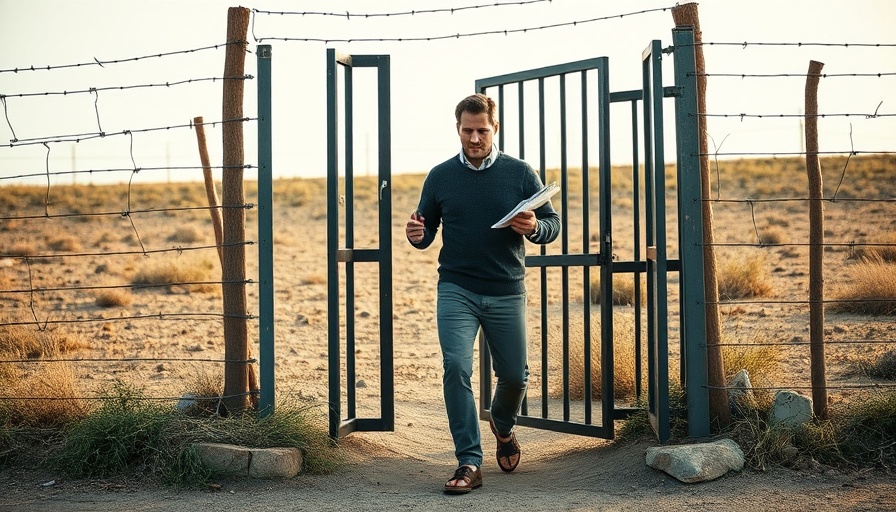
Oscar-Winning Director Targeted in West Bank Violence: An Overview
Hamdan Ballal, an Oscar-winning Palestinian director known for his documentary "No Other Land," recently faced a harrowing experience when he was reportedly beaten by Israeli soldiers after Jewish settlers attacked him outside his home in the village of Susiya, a local area in the southern Hebron hills. This incident, which took place on March 24, 2025, not only highlights the ongoing conflict in the region but also the implications that violence has on artistic expression and cultural representation.
Understanding the Context of Violence Against Palestinians
The incident involving Ballal is part of a broader pattern of violence that Palestinian communities face from settlers, often exacerbated by military involvement. Reports suggest that such attacks have increased in frequency, raising concerns about the safety of individuals living in these conflict zones. As a prominent figure in the entertainment industry, Ballal's experience draws attention to the real-life impact of political strife—beyond the screen and into the lives of those involved in storytelling.
The Role of Media Representation
Documentaries like "No Other Land" aim to uncover the complexities of the Palestinian situation, offering viewers a window into personal experiences often overlooked by mainstream narratives. The attack on Ballal underscores the dangers that filmmakers face, particularly those addressing contentious issues. This scenario prompts us to reflect on the responsibilities of filmmakers and the media in presenting a balanced perspective while highlighting the dire realities contributors endure to share their stories.
Violence in the Eye of the Storm: A Personal Perspective
Ballal's wife has described the incident as a "savage beating," which raises questions about the treatment of combatants under international law. As tensions increase, the narratives surrounding such violent occurrences often become politicized, making it crucial for audiences to engage with these stories with thoughtfulness and empathy. The emotional toll on individuals and families affected by the violence can be profound, reshaping their lives and driving their narratives as artists.
Community Response and the Importance of Solidarity
The community's response following Ballal's experience has been one of solidarity—but it also evokes a need for action. Events like these can galvanize local and international communities to rally against violence and advocate for the safety of those expressing creativity through film and art. Highlighting community resilience can inspire other cultural figures and activists to unite against oppression and injustice.
How This Incident Reflects Broader Societal Issues
Ballal's case is emblematic of larger societal issues, including freedom of expression and human rights in conflict zones. Understanding the intersection of cultural production and political realities can foster deeper discussions about art's role in activism. The filmmaker's work and his experiences serve as a reminder of the power of storytelling in advocating for change.
Future Directions: What Lies Ahead?
In light of recent events, we must consider both the immediate and long-term effects of this violence on filmmakers and cultural productions. How will Ballal's experience influence future narratives within the sphere of entertainment and documentary filmmaking? Will it result in increased scrutiny on armed conflicts, and how will it shape the stories of those living through them?
The Importance of Engagement
For audiences and supporters of the arts, understanding these dynamics is crucial. Engaging with filmmakers on platforms like social media or attending events can raise awareness and foster discussions that advocate for voices like Ballal's. It amplifies the messages that must be heard, urging broader accountability and action against injustices faced by artists globally.
As we reflect on the impact of these violent incidents on cultural figures like Hamdan Ballal, it’s important for the community, both local and global, to take active steps toward supporting artists and advocating for peace. Raise awareness, educate others, and stand in solidarity with those whose stories need to be told.
 Add Row
Add Row  Add
Add 






Write A Comment